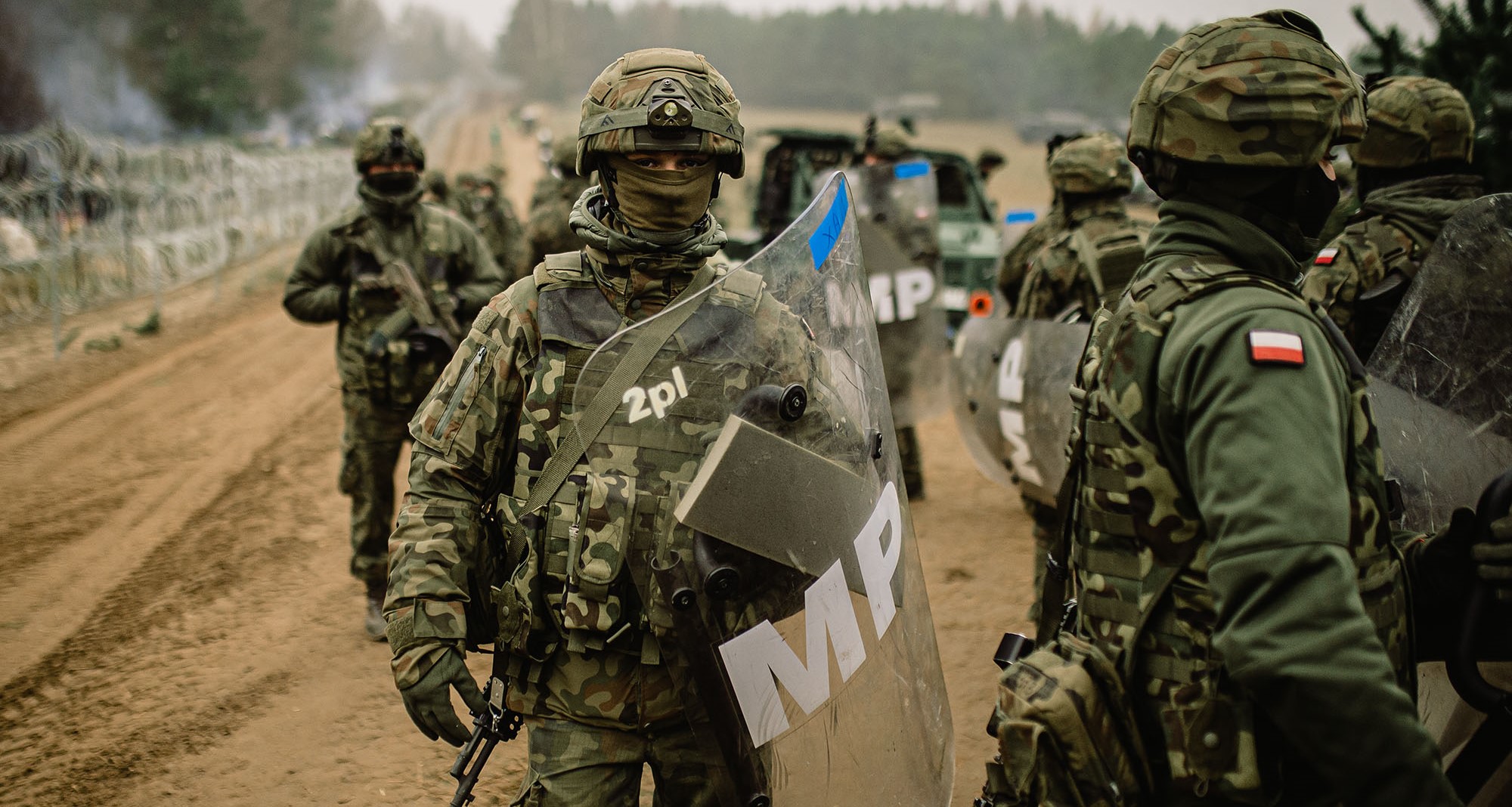Poland to remove criminal liability for officers using firearms during defence of border

Poland’s parliament has approved a law that would, in certain cases, remove criminal responsibility from soldiers and other uniformed officers who violate regulations on using firearms in defence of the border.
The measures were proposed in response to a surge in aggression from some migrants seeking to cross the border from Belarus, which, in one case, led to the death of a Polish soldier. The government says border officers need to know they can take strong measures to defend themselves.
However, NGOs have protested against the legislation, which they say gives officers a “licence to kill”. Both Poland’s and the Council of Europe’s commissioners for human rights have also criticised the bill.
Zakończyliśmy etap prac parlamentarnych nad ustawą, która zwiększa bezpieczeństwo naszej Ojczyzny, daje większe poczucie bezpieczeństwa żołnierzom oraz prawo do użycia broni na precyzyjnie określonych zasadach. Dziękuję wszystkim, którzy głosowali za polskim bezpieczeństwem.… pic.twitter.com/pNaGpPuZdk
— Władysław Kosiniak-Kamysz (@KosiniakKamysz) July 26, 2024
The legislation in question was proposed by the government last month, shortly after the death of 21-year-old Mateusz Sitek, a soldier who was stabbed while trying to stop a group of migrants from crossing the border.
The version now approved by parliament – which differs slightly from the originally proposed bill – amends Poland’s penal code to exclude, under certain conditions, criminal liability for the use of weapons by officers at the border in violation of normal rules of engagement.
Those conditions include “repelling a direct and unlawful attack” that threatens the “life, health or freedom” of officers during an “attack on the inviolability of the state border”, or when “counteracting actions directly aimed” at such an attack.
They also include cases when a person refuses to obey calls to abandon weapons or other dangerous items, or when they try to seize a weapon from an officer, and the “circumstances require immediate action”.
Sorry to interrupt your reading. The article continues below.
Notes from Poland is run by a small editorial team and published by an independent, non-profit foundation that is funded through donations from our readers. We cannot do what we do without your support.
The bill also provides for state-funded legal aid for officers put on trial for using weapons at the border and it introduces the legal concept of military operations conducted on Polish territory during times of peace.
“This act increases the sense of security of soldiers who steadfastly defend the border of Poland and the European Union,” said defence minister Władysław Kosiniak-Kamysz after the Sejm, the lower house of parliament, gave final approval to the legislation on Friday.
He thanked MPs – both from the ruling coalition and opposition – for their almost unanimous support for the legislation and urged President Andrzej Duda – to whom the bill now passes – to sign it into law as soon as possible.
Recent months have seen a surge in attempted crossings over Poland’s border with Belarus as well as violence by migrants towards Polish officers.
Security expert @MPiekarski24 explains why the situation has changed and how the government is addressing it https://t.co/tYNT5eL9SZ
— Notes from Poland 🇵🇱 (@notesfrompoland) June 12, 2024
However, the proposed new measures have been criticised by leading Polish NGOs, including the Helsinki Foundation for Human Rights, the Batory Foundation and Free Courts, who say it could result in officers not being held to account for abuses.
In a letter sent to the speaker of the Polish Senate last week, the Council of Europe’s commissioner for human rights, Michael O’Flaherty, warned that the law could discourage border agents from using force proportionally and could result in the use of firearms not being properly investigated.
Earlier this week, Poland’s commissioner for human rights, Marcin Wiacek, said that the law “does not meet the requirement of proportionality in relation to the protection of life” and thereby conflicts with both the Polish constitution and the European Charter of Human Rights.
Speaking today after the bill passed, deputy defence minister Marcin Ociepa told Polsat News that the measures are “not about impunity for soldiers” but about helping them “defend citizens who live here”.
The Council of Europe’s human rights commissioner has voiced concern at Poland’s response to the migration crisis on its border with Belarus.
Poland has written back to him saying that the situation is one „that international law could not have predicted” https://t.co/q2WDXddXSo
— Notes from Poland 🇵🇱 (@notesfrompoland) July 24, 2024
Main image credit: Irek Dorozanski / DWOT (under CC BY-NC-ND 2.0)

Daniel Tilles is editor-in-chief of Notes from Poland. He has written on Polish affairs for a wide range of publications, including Foreign Policy, POLITICO Europe, EUobserver and Dziennik Gazeta Prawna.






